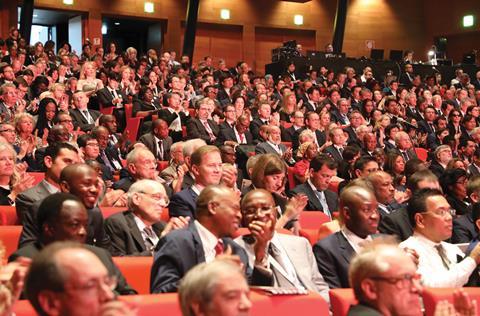My overwhelming impression from attending the International Bar Association conference in Rome (pictured) – the largest annual gathering of lawyers – is of a profession hunkering down for a storm. Some have gathered in a shelter, gossiping about the weather. Others are determined to tough it out in their own homes. The coming event is of course the technological revolution, which featured in many discussions.
The good thing is that there is high awareness, not only of the likely impact of the revolution, but also of its various features. So I found no lawyer with their head in the sand about the gravity of the approaching changes. And people seem generally aware of its various manifestations: artificial intelligence, blockchain, electronic platform delivery, use of algorithms, and so on.

But the big decisions have not yet been taken, and there is not much discussion about them, either. Put another way, the principles of future action are agreed, but not how to implement them. So everyone is agreed that lawyers should surf the wave, not resist it. Everyone agrees that lawyers should adopt and implement the new technology to ensure that it is lawyers who – for good public interest reasons – remain in charge of the delivery legal services. But the how is not discussed.
Let me begin with financial investment. The ability to manage, say, your own electronic platform for the delivery of legal services, or to refine AI to deliver expert legal services, does not come cheaply. We know that the largest firms are investing heavily in technology. Good for them – they may, just, be able to afford the necessary investment themselves.
But much of the revolution, through electronic platform delivery and bots, is taking place at the other end of the market. I assume we are also all agreed that it is still one legal profession, with the City solicitor and the struggling legal aid solicitor bound together in a single union. If so, who is going to help the struggling legal aid solicitor to invest in the necessary technology to surf the wave?
Or do we not care if electronic platforms and bots, neither developed nor owned by lawyers, become the controllers of legal services at the poorer end? We have seen with Uber, Airbnb and meal-delivery companies that they not only control their sector of the market, but they also do so without complying with the public interest regulations that bind their regulated competitors.
My view, and it is my view alone, is that the only salvation can come through the professional body. I know that public authorities and similar organisations do not have the best record in managing large projects which intervene in the market. Doubtless there should be strategic partnerships with others.
But who else other than the Law Society can manage the investment for solo practitioners and small and medium-sized firms to cope with the coming wave? (I have written before that the French bar has done just that in setting up its own electronic platform for the delivery of legal services by its members, Jamais sans mon avocat – Never without my lawyer.)
The next big decision relates to the training of future lawyers. Changes are beginning to take place in the US: there is now a long list of law schools there offering IT-related legal courses in addition to their more substantive law courses. I trust the same is beginning to happen here. Lawyers will never be able to cope with the revolution if they are not adequately trained in its ingredients and impact. This should be at the top of our training agenda.
There is a third big decision, which affects us less here – and that is the definition of legal services. In our jurisdiction, anyone can do anything, including a machine, provided that it does not impact on the reserved activities. That does not apply to other jurisdictions, where the scope of legal services provided by a lawyer is much broader, meaning that conflicts with machine services will arise earlier and more often.
We know that our reserved activities are unpopular with competition authorities and with those who seek to deregulate the profession. So far they have remained untouched, but if blockchain is the miracle of security and ease that we are promised, will this remain the case for long? Blockchain’s great boast is that it cuts out the middle person. We need to analyse our reserved activities in the light of the technological revolution, and be aware of its impact, so that we ready for the discussion which will take place.
In other words, we need to move on from awareness that a storm is coming to taking difficult and sometimes expensive decisions to cope with its consequences: on investment, training, and in evaluating the reserved activities.
Jonathan Goldsmith is Law Society Council member for EU matters and a former secretary general of the Council of Bars and Law Societies of Europe. All views expressed are personal and do not necessarily reflect the views of the Law Society Council.































No comments yet